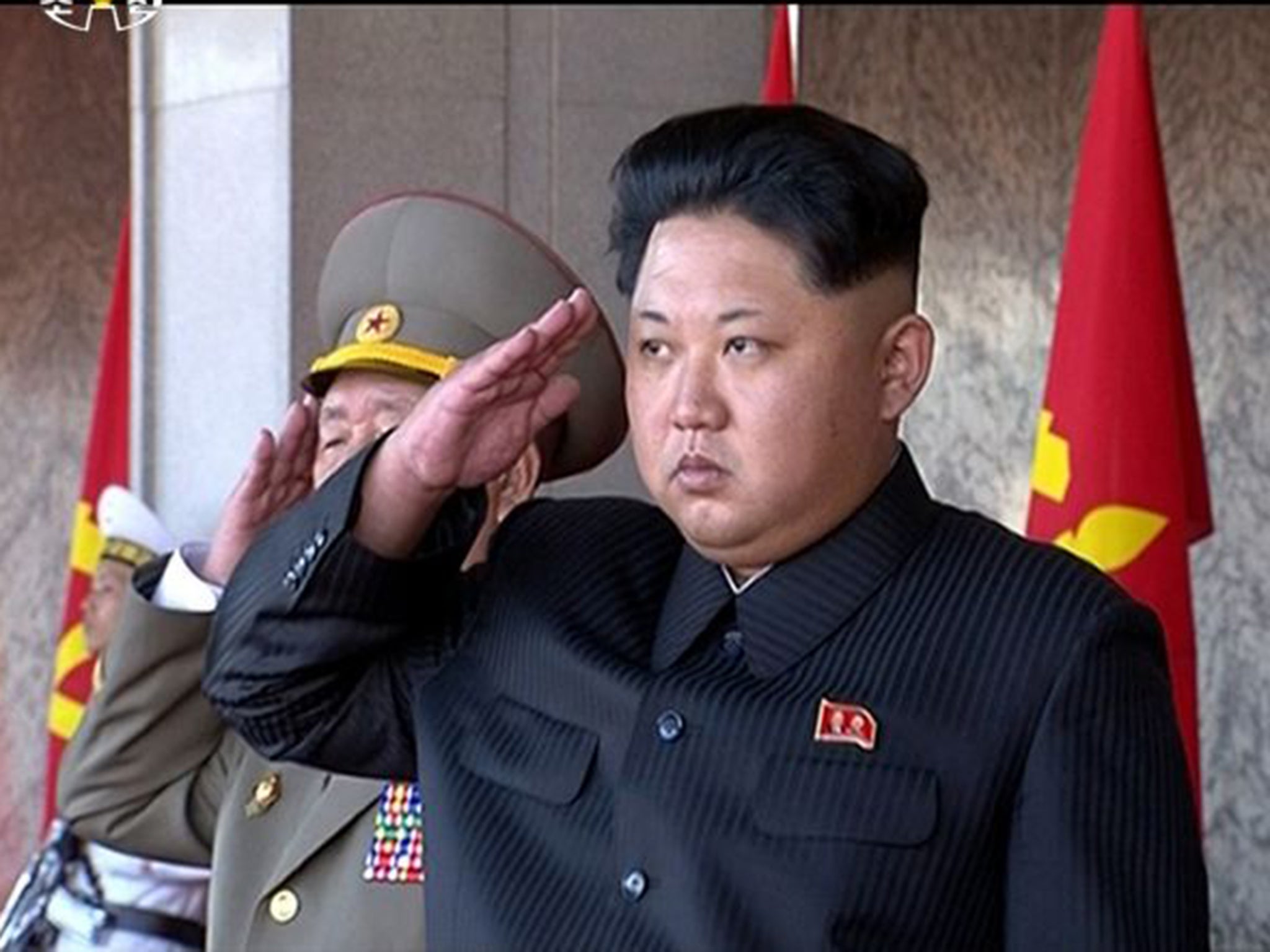North Korea parade: Kim Jong-un brings rhetoric but also a glimmer of hope on fictional anniversary
The leader's speech belonged to a bygone age, but he seems to understand ferocity will carry him only so far


Your support helps us to tell the story
From reproductive rights to climate change to Big Tech, The Independent is on the ground when the story is developing. Whether it's investigating the financials of Elon Musk's pro-Trump PAC or producing our latest documentary, 'The A Word', which shines a light on the American women fighting for reproductive rights, we know how important it is to parse out the facts from the messaging.
At such a critical moment in US history, we need reporters on the ground. Your donation allows us to keep sending journalists to speak to both sides of the story.
The Independent is trusted by Americans across the entire political spectrum. And unlike many other quality news outlets, we choose not to lock Americans out of our reporting and analysis with paywalls. We believe quality journalism should be available to everyone, paid for by those who can afford it.
Your support makes all the difference.The young one is clearly settling into the job. After a hectic period during which the main news from Pyongyang concerned stories, true and contested, of the novel and grisly means Kim Jong-un was using to dispose of unwanted officials, this event was by contrast almost sentimental: a military parade to bring a lump to the throats of Cold Warriors everywhere.
Contrary to North Korean myth, nothing special happened on 10 October 1945, and the founder of the Workers’ Party was not young Kim’s grandfather Kim Il-sung but an older apparatchik later executed as a spy.
Kim Jong-un’s speech at this fictitious anniversary featured the usual hair-raising menaces to the US. Although doubts persist over the missile hardware on display, Pyongyang has enough nuclear ammunition to instil respect.
The regime’s philosophy of juche, or self-reliance, and songun, “military first”, are the best assurance that this preposterous and frightening state will continue to survive despite its striking absence of allies.
After purges of senior army officials, the importance for Kim of the Workers’ Party, the focus of the celebrations, is clear: it provides a counterbalance to the weight of the army and it anchors his legitimacy in that of the state’s founding organisation.
It also enables him, through the medium of the party, to offer his suffering people the hope that, after the terrible decade of famine following the fall of the Soviet Union, life in North Korea may become a little less grim. The apartment blocks rising in Pyongyang may have a Potemkin look to cynical outsiders, but if they are a sign of changing priorities for the regime, Kim could find himself genuinely popular. As the foreign journalists flocking through Pyongyang in recent days have pointed out, capitalism has arrived in North Korea by the back door.
Kim Jong-un’s fiery rhetoric belongs to an age which ended while he was still a child, but he seems to understand that ferocity and provocation will carry him only so far. And when he spoke of the need for “a peaceful and stable external environment … to develop economically and improve people’s livelihood”, he almost sounded like a politician.
Join our commenting forum
Join thought-provoking conversations, follow other Independent readers and see their replies
Comments